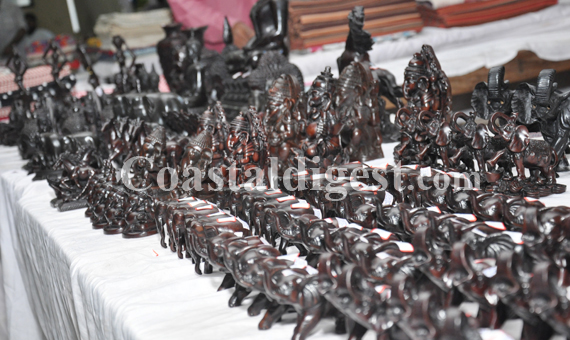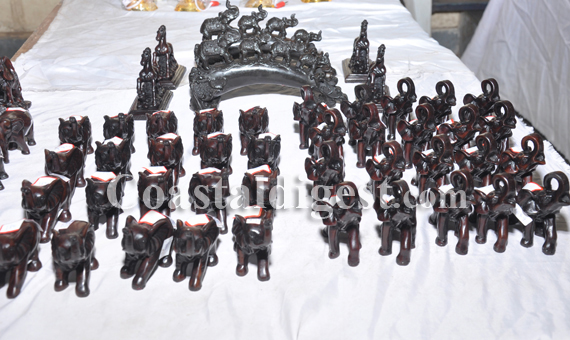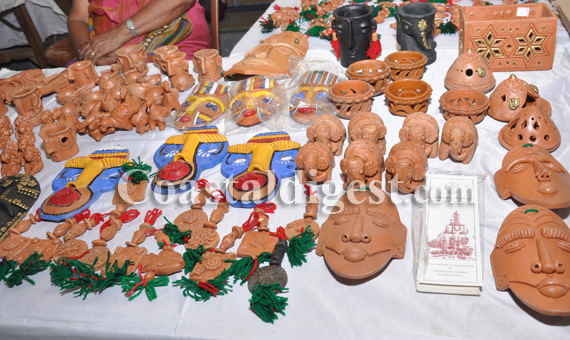Mangalore, Dec 6: A ten-day exhibition featuring the rich and varied art and craft traditions from various parts of India,'Cottage Mela 2013' organised by Central Cottage Industries Emporium (CCIE) was inaugurated here on Friday, providing a platform for the cultural and artistic interchange between artisans and customers.
The exhibition-cum-sale was inaugurated by owner of Woodlands Hotel, Mangalore Ramesh Bhat in the premises of the hotel.
Several customers were seen interacting with artisans from Rajasthan, Kashmir, Tamil Nadu, Hyderabad and other parts of the country, admiring hand-made art objects and jewellery.
Exquisitely-made handicrafts such as silver jewellery, ethnic show pieces made from terra-cotta, paintings, metal ware, woodcraft, show pieces made of marble dust from Tamil Nadu, pottery, lamps, Kashmiri hand-woven carpets, hand-crafted wooden furniture, brass and bronze idols and semi-precious stone jewellery were on display at the exhibition.
The sale also presented several kinds of textiles such as handloom and cotton sarees and dresses, kurtas, jackets and scarves from Bihar, Rajasthan, Lucknow and Kashmir.
Apart from the special attraction of hand-knotted carpets, handmade silver jewellery made by artisans from Kashmir caught the fancy of women who walked into the mela.
Another crowd-puller were exquisite art products and show pieces creatively made out of terra-cotta that were kept on display by Mangalorean Merlin Raskina, who has been making show-pieces and conducting exhibitions from the past 20 years.
The mela will be open till December 15 from 10 a.m. to 7 p.m. For further details, contact Inayath Shah – 9448071867.









Comments
What's up, yup this paragraph is actually nice and I have
learned lot of things from it concerning blogging. thanks.
my website: disney T Shirts: http://customizedt-shirtscheaponline.com
Add new comment